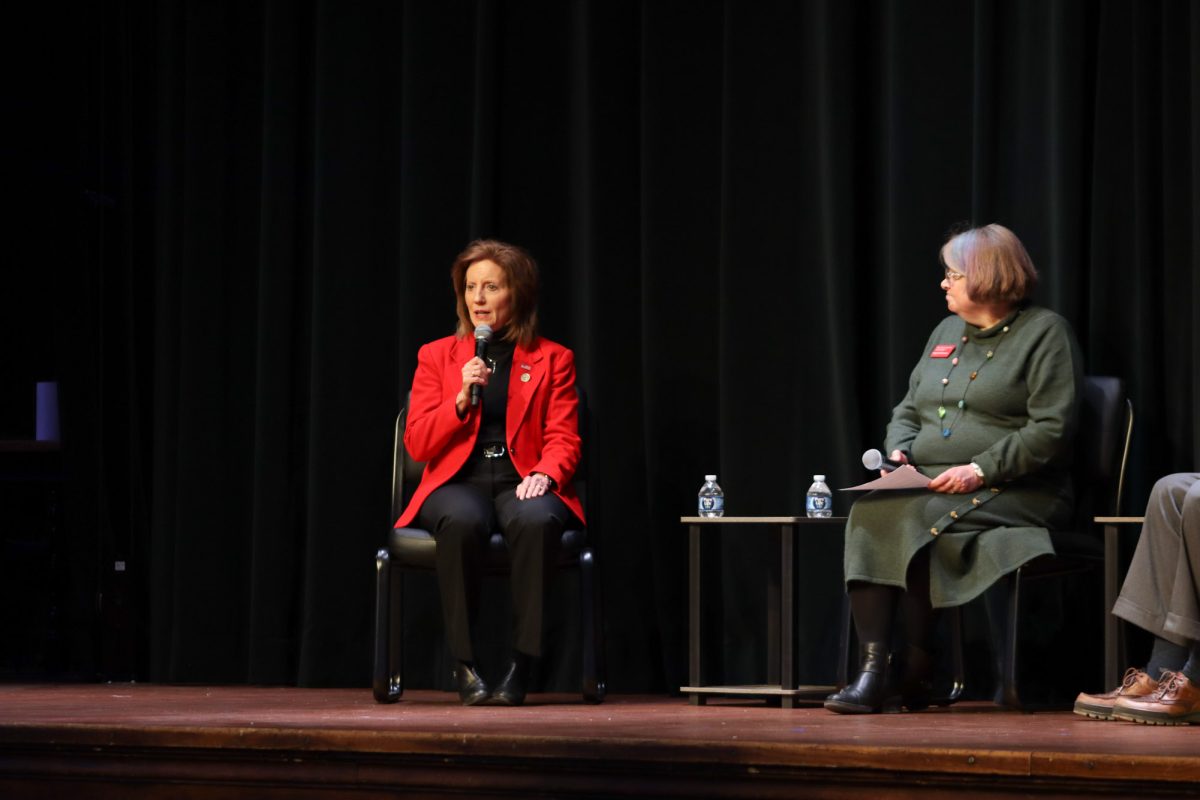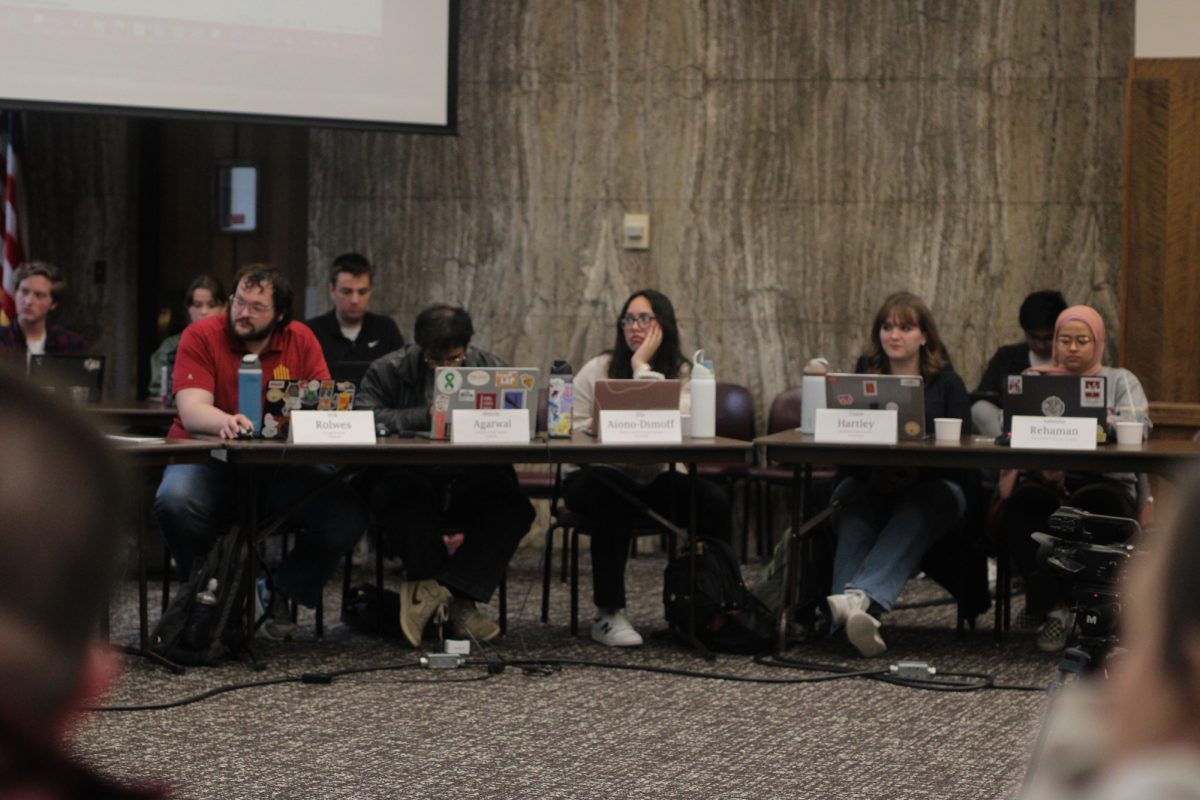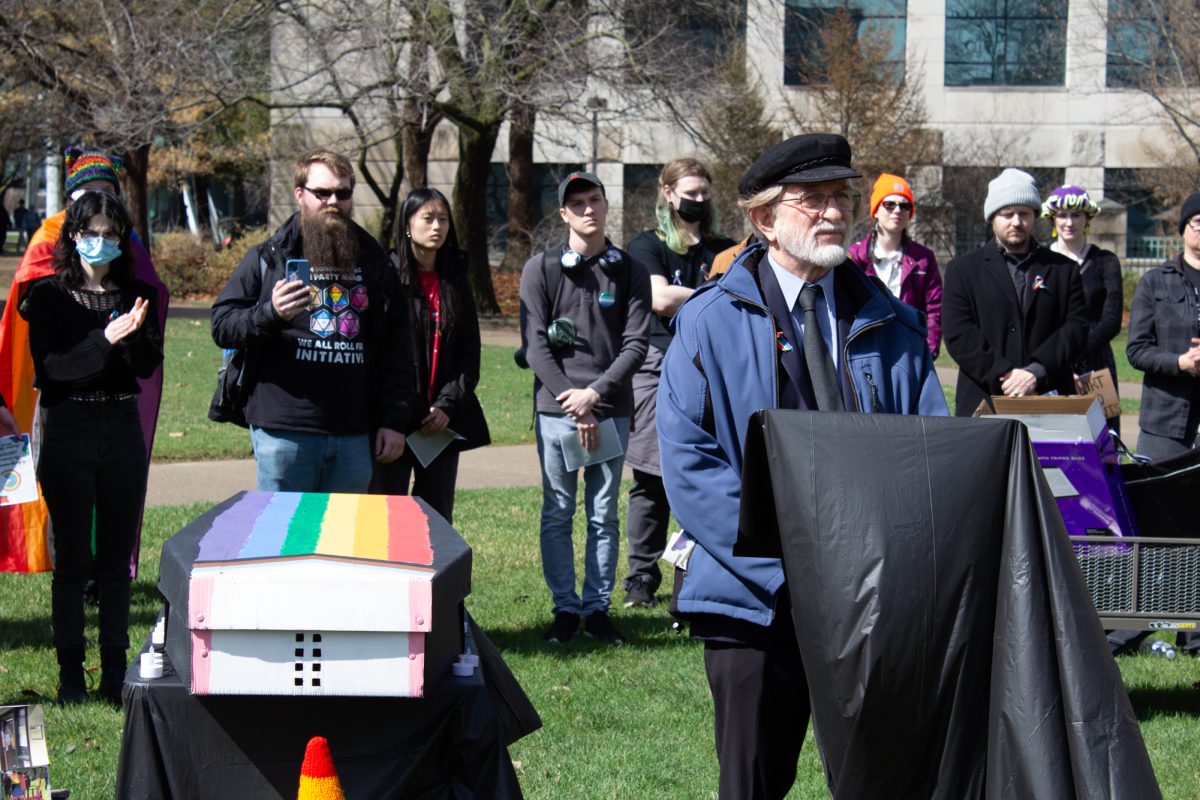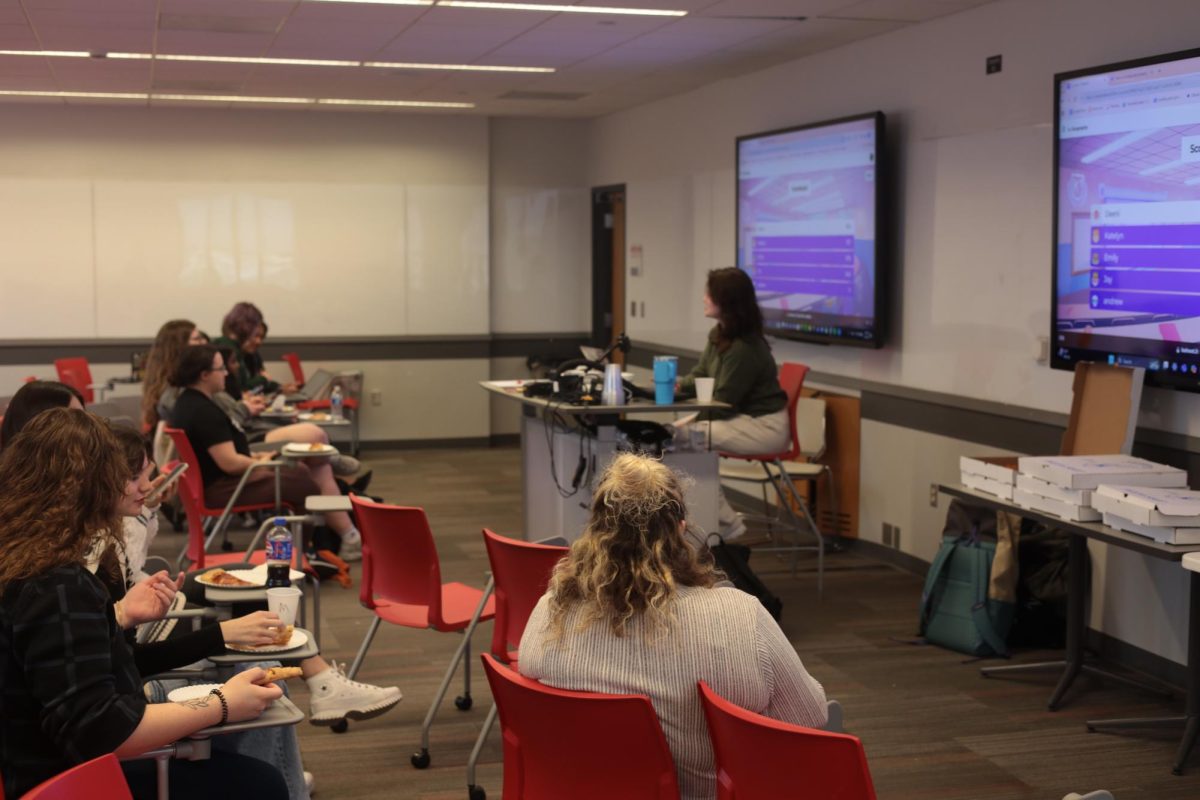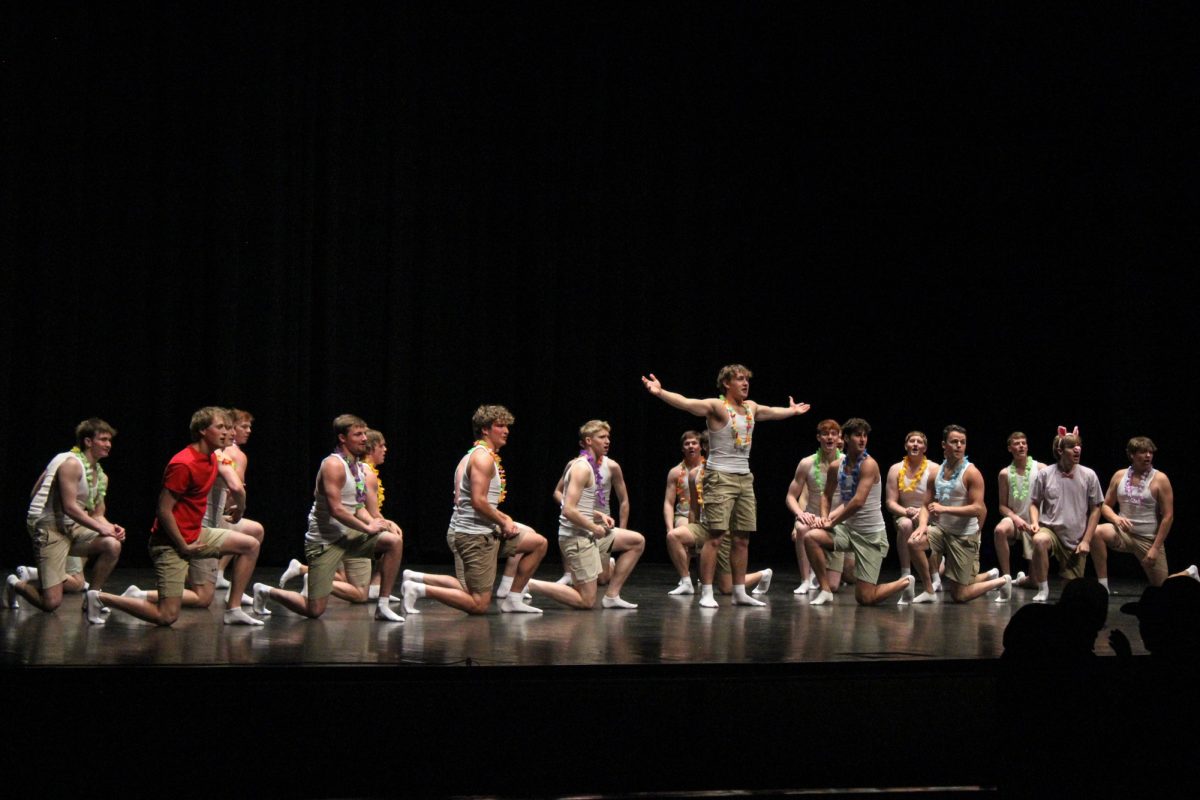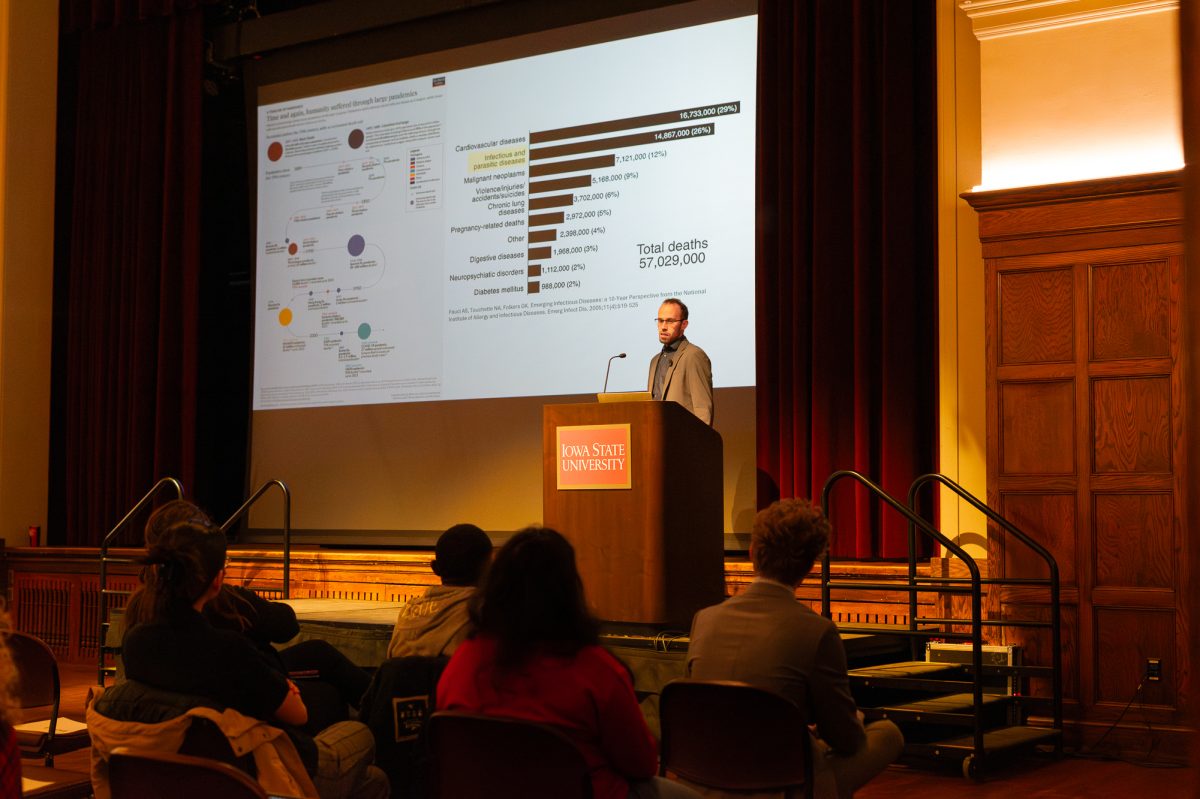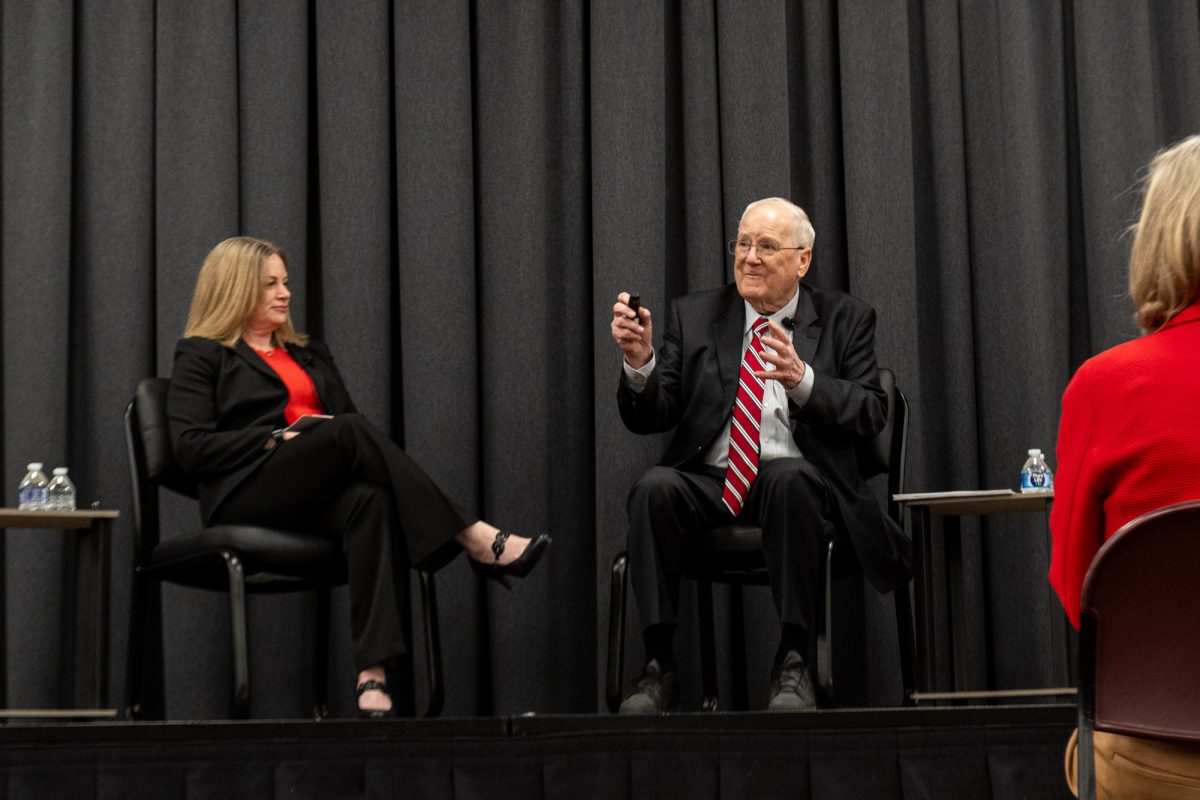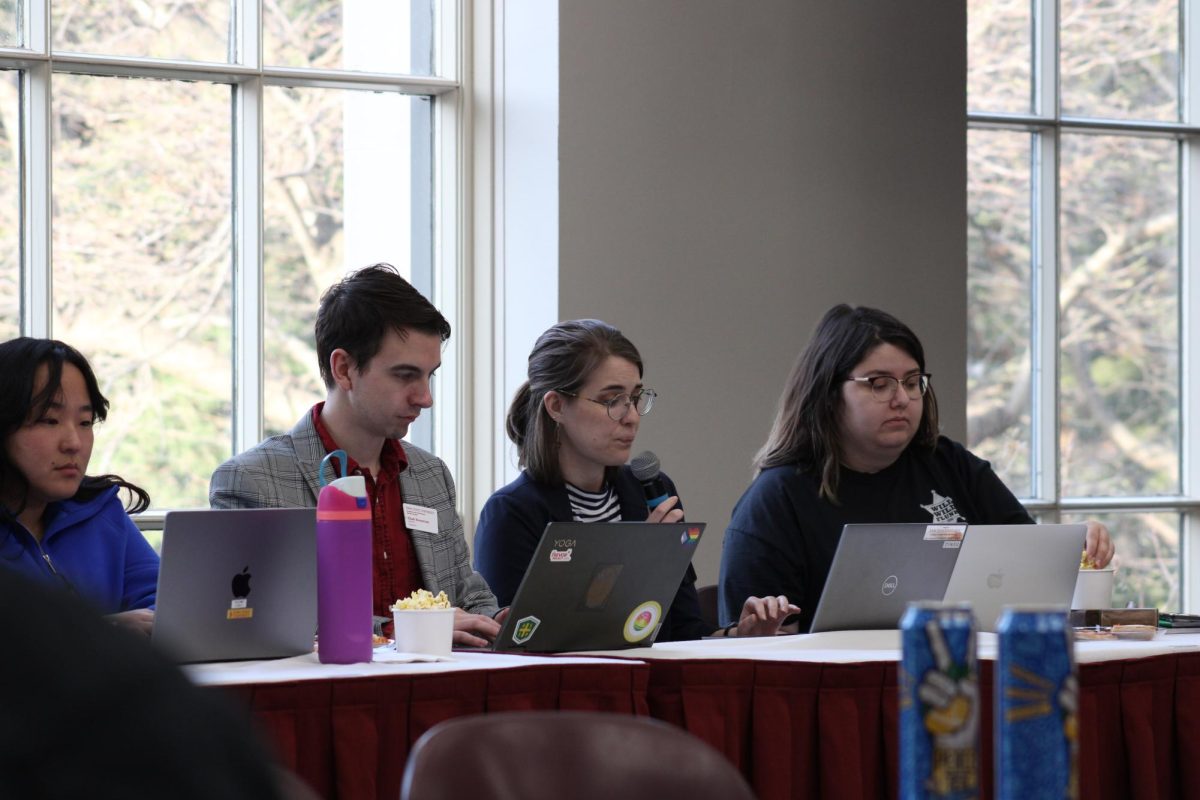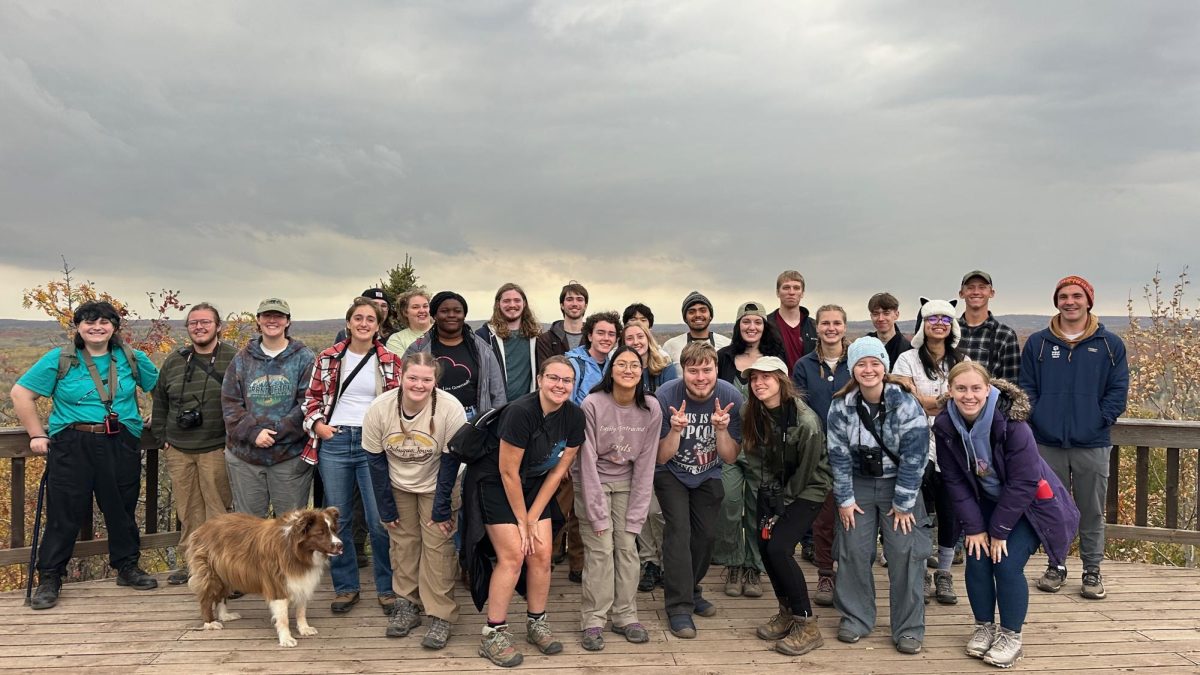On Wednesday night, former U.S. Reps. Vicky Hartzler (R-Missouri) and David Skaggs (D-Colorado), joined moderator Karen Kedrowski, director of the Carrie Chapman Catt Center for Women and Politics, on the stage of the Memorial Union’s Great Hall to have an open discussion on Congress and bipartisanship.
The event, co-sponsored by the Carrie Chapman Catt Center for Women and Politics, Political Science Department, Cyclone Civics and the Committee on Lectures (which obtains funding from Student Government), began with a warm welcome from Hartzler and Skaggs. The two wandered through the crowd, introducing themselves to audience members and discussing hometowns and majors while providing their appreciation for their presence at the gathering.
While Kedrowski introduced the panel, someone in the audience distributed a personal essay among audience members. The essay by Sondra Wilson titled “A Champion for Women is a Champion for all Women,” called upon Hartzler to reevaluate some of her previous statements regarding transgender women.
Kedrowski then began the discussion with her opening question.
“What made you decide to run?” Kedrowski asked.
Hartzler was the first to respond.
“I was a teacher, and I was grading papers one night, and the phone rang […] [they asked me] ‘We were wondering would you run?’” Hartzler said. “My first reaction was no way. […] As I looked back on my life, I was always drawn to politics. […] So, I ran.”
Skaggs followed up with his answer.
“I had the wonderful experience […] of going to Washington,” Skaggs said. “I would never be satisfied if I never gave it a shot myself.”
The two then compared running at a local level to running for the U.S. House.
“The prospect of being a United States representative was beyond my imagination,” Skaggs said. “It was a very different experience being national versus local in all sorts of different ways.”
Hartzler mentioned how large of a leap the run was. She said the odds of winning the election were low when she ran for Congress, but thanks to the people helping her, she could tackle the learning curve and win the race.
Kedrowski then moved on to the money involved when running for Congress.
“That’s a barrier that’s a concern for a lot of people entering politics,” Kedrowski said.
Hartzler began by discussing her most expensive campaign.
“I think it was $1.5 million, which to me is astronomical,” Hartzler said. “It takes a lot of people. You can’t run for office by yourself.”
Skaggs shared his fears about the amount of money used in modern-day campaigns.
“I think it’s awful that we’re spending that kind of money,” Skaggs said. “It feeds that kind of [cynicism] that a lot of you are probably feeling about our politics. [Hartzler] was not for sale, and neither was I, but it sure feels like it.”
The two then jumped into discussing bipartisan work.
Skaggs discussed his famous dislike of Henry Hyde, former U.S. representative and Republican from Illinois. Hyde was the author of the Hyde Amendment, which prevents federal funds from being used for elective abortions.
Though Skaggs and Hyde had differing beliefs, the two worked together to fight for Article One, Section Eight of the Constitution.
This section of the Constitution states that Congress gets the final call when the United States declares war. Skaggs and Hyde felt that this wasn’t being upheld by leaders and fought to ensure Congress had their rights restored to them.
“When you look for it, you can find things in common with everybody,” Hartzler said.
Finally, the two discussed how the American people can move past partisanship.
Skaggs discussed his view on the “erosion” of the community in Congress. He felt that due to the busy workweek, Congress members didn’t have the opportunity to get to know each other on a personal level. Because of this, Skaggs felt that partisanship was more evident than ever in the United States Congress.
“I think rewarding bipartisanship would be helpful in the cause,” Hartzler said.
To end the event, audience members could ask the former representatives questions at an open microphone. Some questions included how the representatives felt about the current presidency, how it felt to push former President Joe Biden to step down from his campaign and social stigma within political parties.
“I just love people […], and it was so rewarding to get to help them,” Hartzler said. “All those things made every hour working and every hour away from the family worth it.”
For more information on the Iowa State Lecture Series and their upcoming events, visit their website.


